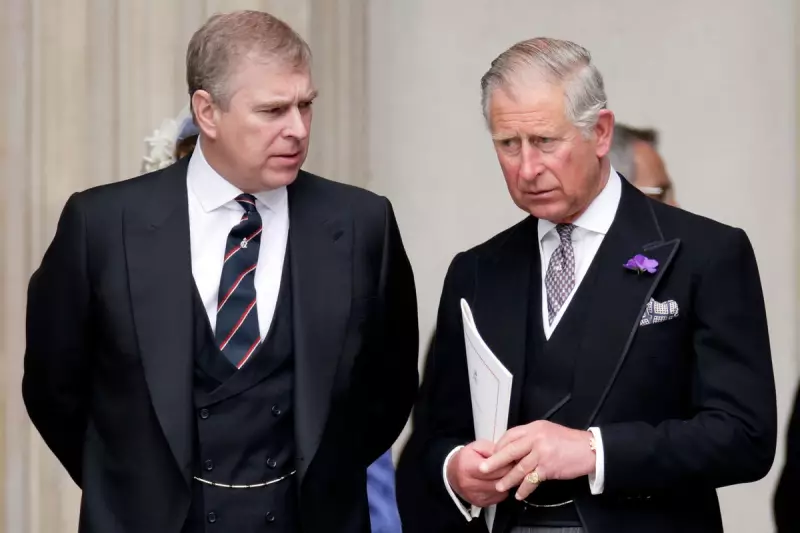
The spectre of Prince Andrew's catastrophic association with convicted sex offender Jeffrey Epstein continues to loom large over the House of Windsor, creating what royal commentators describe as an "unprecedented and permanent" crisis for the monarchy.
Despite his brother's ascension to the throne, the Duke of York remains in a state of effective banishment from royal life. Stripped of his military affiliations and royal patronages in 2022, Andrew has become the institution's most problematic figure, a permanent reminder of the damage wrought by his poor judgement and association with Epstein.
The Unshakeable Shadow on the New Reign
King Charles III, who inherited a monarchy already facing numerous challenges, now finds his reign permanently complicated by his brother's actions. The scandal represents more than just personal failure—it has become an institutional crisis that threatens the very reputation of the Crown.
Palace insiders suggest there is no path back to public life for the disgraced Duke. His presence at any royal event immediately triggers negative press coverage and public outrage, making him effectively unusable as a working royal.
A Modern Monarch's Dilemma
Charles faces an almost impossible balancing act: managing family loyalty while protecting the institution he now leads. The King's decision to effectively exile his brother demonstrates the modern monarchy's vulnerability to personal scandal in an era of intense media scrutiny and public accountability.
The situation is further complicated by Andrew's continued residence at Royal Lodge, a luxurious 30-room mansion in Windsor Great Park. This arrangement has raised eyebrows, with many questioning why the disgraced prince continues to enjoy such privileges while being removed from official duties.
The Permanent Stain on the Crown
Royal experts note that unlike previous royal scandals, which eventually faded from public memory, the digital nature of modern media ensures that Andrew's association with Epstein remains easily accessible and constantly revisited. This creates what one commentator called "a permanent stain" on the current reign.
The monarchy's inability to fully distance itself from the scandal—despite Andrew's removal from public duties—highlights the enduring challenge that his actions present to an institution built on reputation and public trust.
As Charles attempts to modernise and streamline the monarchy, his brother's presence serves as a constant reminder of the old ways that nearly brought the institution to crisis point. The King's handling of this ongoing situation may well define his ability to protect the monarchy from future threats to its stability and reputation.





